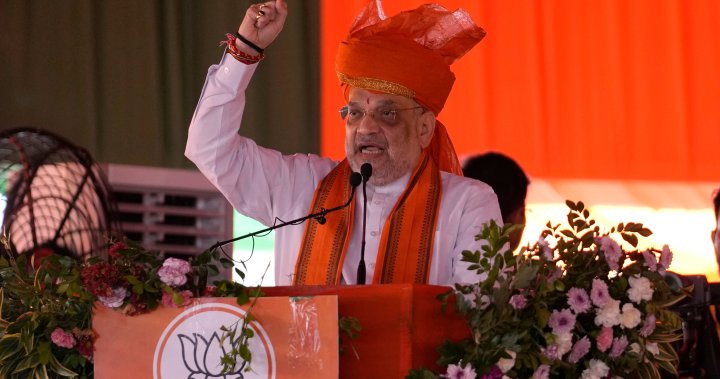The Canadian government recently expelled six diplomatic and consular officials posted at India’s foreign missions in Ottawa and consulates in Toronto and Vancouver due to their alleged involvement in a campaign against activists and opponents of Prime Minister Narendra Modi. The crimes committed as part of this scheme include arson, drive-by shootings, and murders, mainly targeting members of the Khalistan movement that supports independence for India’s Sikh-majority Punjab. It has been revealed that the operation was allegedly approved by Modi’s right-hand man Amit Shah, India’s second most powerful politician.
Authorities have uncovered evidence suggesting that officials working from India’s consulates in Ottawa have been employing coercion and cash to recruit individuals in the South Asian community to conduct tasks for them. These tasks include spying on individuals and Sikh organizations in Canada, with the information gathered being relayed back to India. In some instances, this intelligence was then used to target Khalistan activists and other opponents of the Modi government. Organized crime groups in India were also enlisted to carry out attacks on these targets in Canada, posing a serious threat to public safety.
The Royal Canadian Mounted Police (RCMP) have taken the unusual step of alerting Canadians about India’s suspected involvement in criminal activities in Canada. Despite law enforcement measures, the harm has persisted, prompting the RCMP to confront the government of India and inform the public about the serious findings that have been uncovered through investigations. Multiple ongoing investigations across the country have been linked to this scheme, including extortion and arsons in Edmonton, the murder of Sukhdool Singh Gill in Winnipeg, and shootings targeting individuals in British Columbia and Ontario.
Prime Minister Justin Trudeau has connected certain criminal incidents in Canada to the government of India. This includes the case of Inderjeet Singh Gosal, a Sikh-Canadian activist who took over organizing a referendum for Khalistan independence after his predecessor was killed. Gosal believes the shooting at his home and the threat on his life were directly linked to the Indian government’s operation in Canada. He has received warnings from both the RCMP and the Canadian Security Intelligence Service (CSIS) about the danger he faces. Gosal’s case highlights the political nature of these crimes and the true intentions of the Indian government against its opponents abroad.
Amit Shah, Modi’s close confidant and right-hand man, has been implicated in approving the operation targeting pro-Khalistan activists in Canada. Shah, a Hindu nationalist, previously faced allegations of involvement in the kidnapping and killing of a Muslim couple while serving as home minister of Gujarat state. He denied the charges and was acquitted in 2014, rising in the ranks of the Bharatiya Janata Party (BJP) along with Modi. As India denies the allegations made against Shah and the government’s involvement in criminal activities in Canada, the situation has escalated into a political dispute between the two countries.
The Indian government has strongly rejected the accusations made by Canada, attributing them to the political agenda of the Trudeau government. India dismisses the claims as preposterous and motivated by political considerations. These developments have shed light on the complexities of international relations and the extent to which governments may go to target individuals and groups perceived as a threat to their authority. The ongoing investigations and revelations regarding India’s alleged covert activities in Canada have brought attention to the risks faced by activists and opponents of the Modi government, leading to diplomatic tensions between the two countries.


